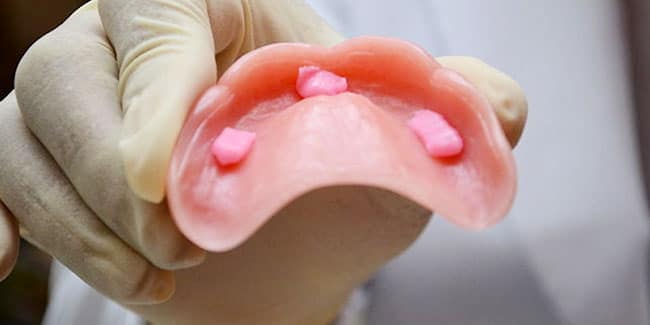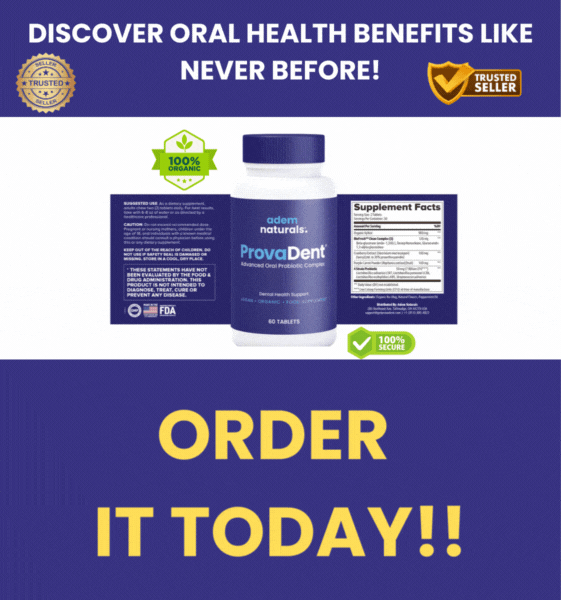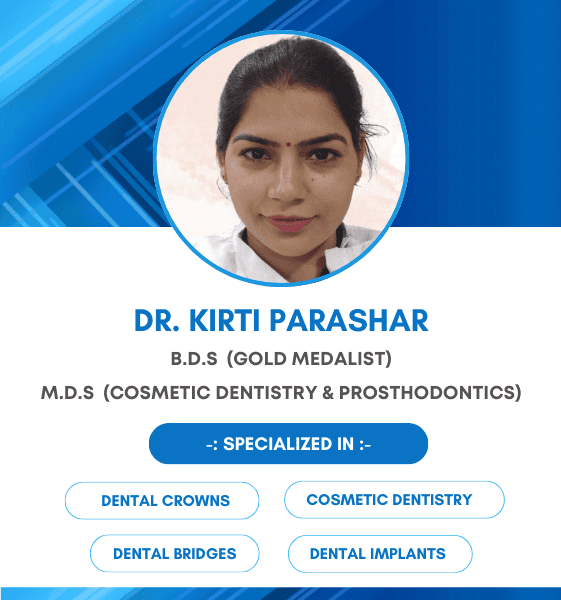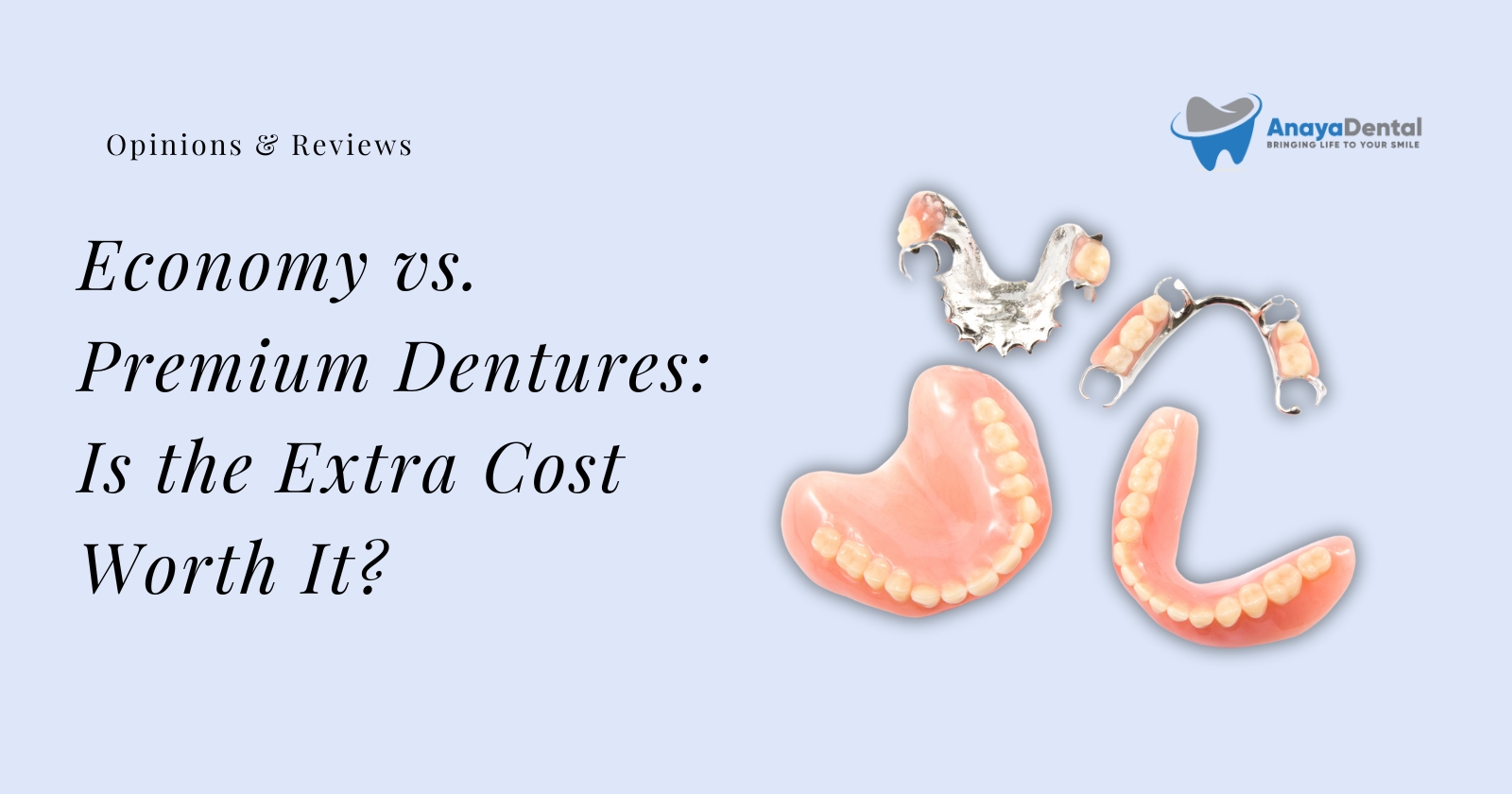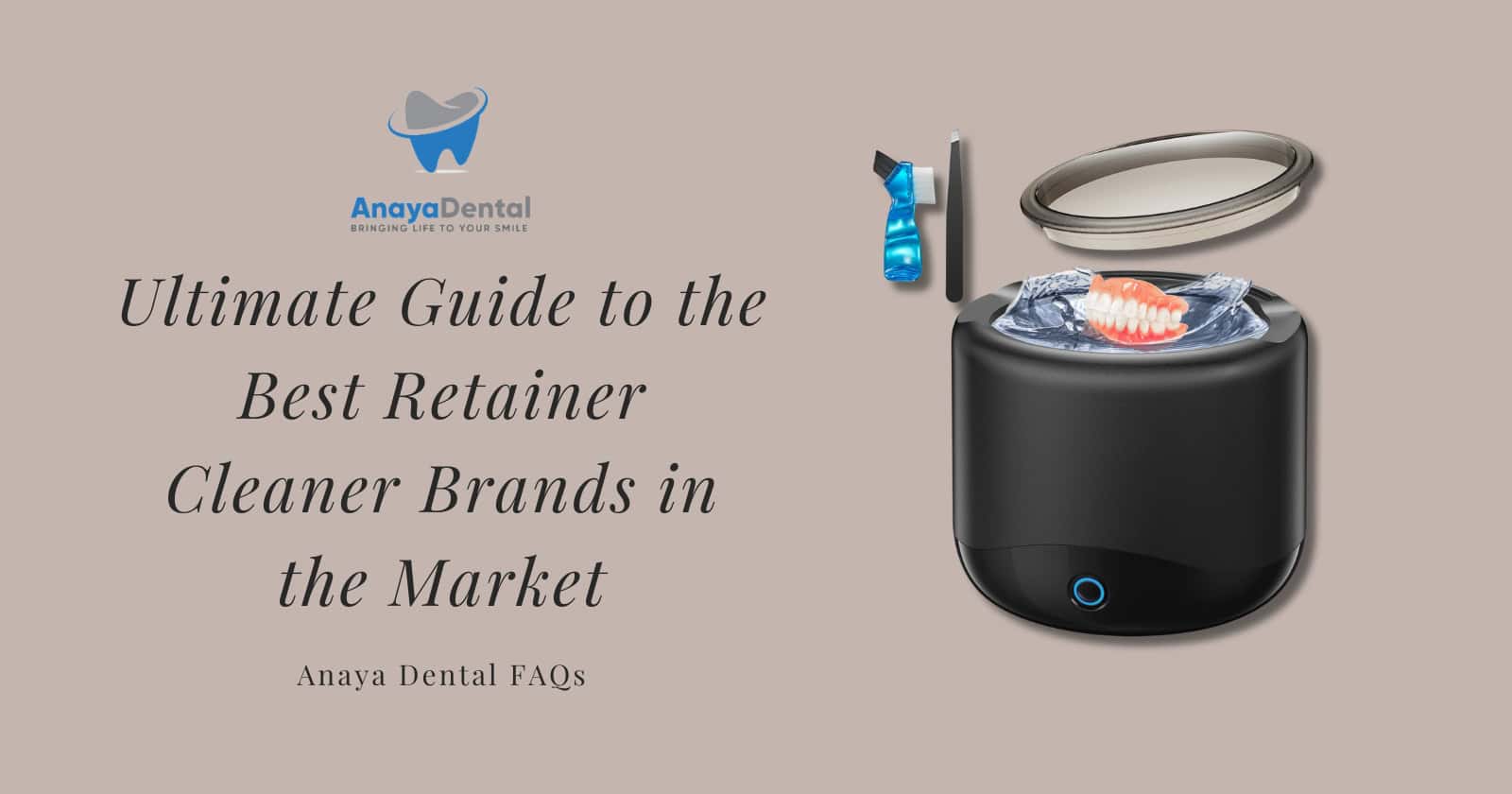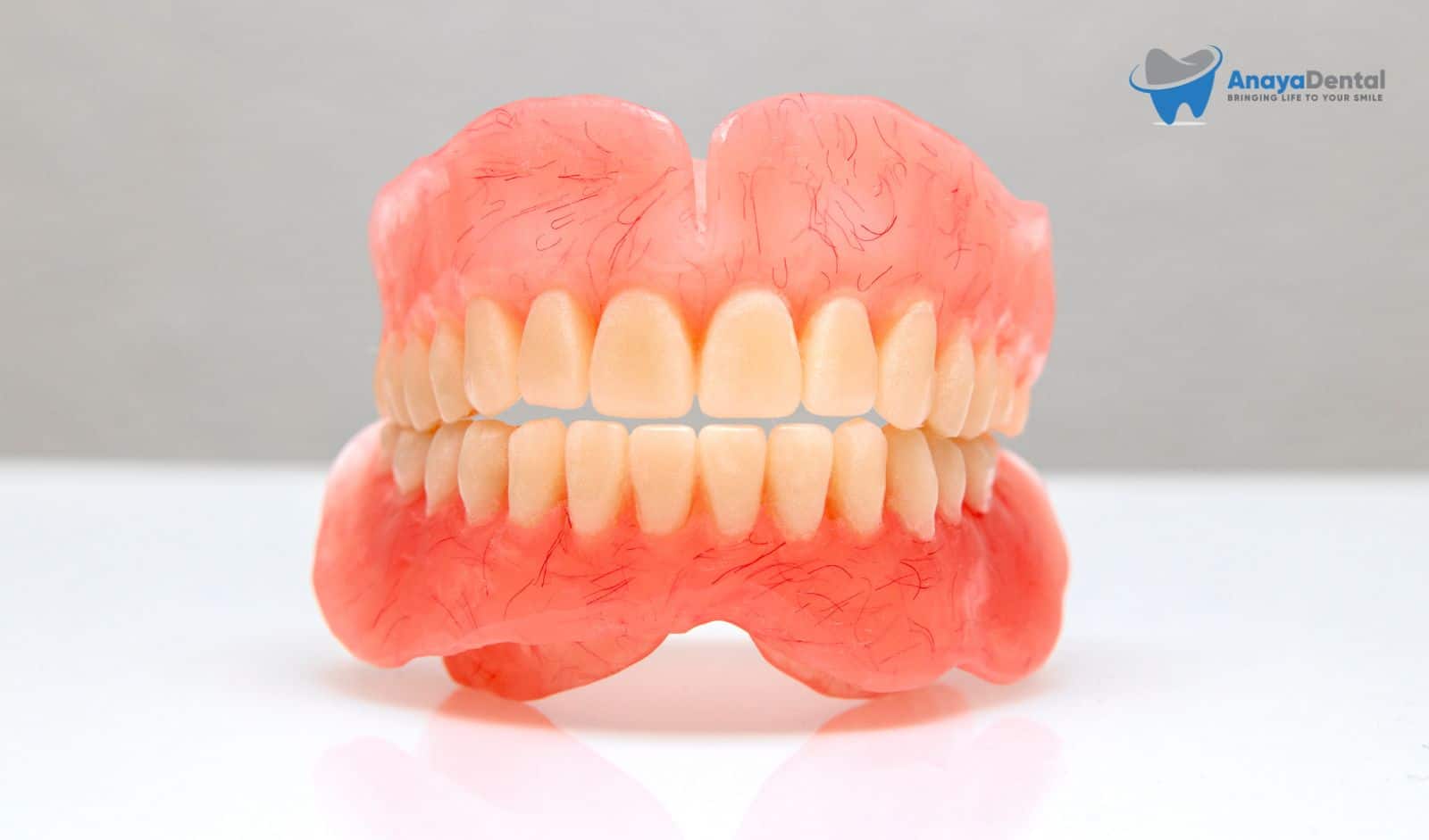Denture adhesives are an important adjunct in providing retention to the denture by removing the gap between the denture and oral tissues. Denture adhesives are marketed as pastes, powders, or creams. Dental professionals have been slow to accept denture adhesives as a means to enhance denture retention, stability, and function. Despite considerable documentation advocating patient’s use of adhesives, many view adhesive usage as a poor reflection of a clinician’s skills and practice expertise. But, nowadays, adhesive usage is increasing daily as it increases initial retention and provides psychological comfort to the patient.
TYPES OF DENTURE ADHESIVES-
Denture adhesives are available in three forms-
- Powder form
- Cream form
- Strip form
WHEN TO USE DENTURE ADHESIVES?
- When the denture is delivered to the patient and does not meet patient’s the perceived retention and stability expectations.
- For handicapped patients-
Patients with xerostomia(decrease in saliva)
Old age patients
Patient with poor muscle tone(neurological disorders) - Improve psychological effect when the patient wants extra retention and stability.
- When frequent dislodgement of denture causes frequent ulcerations
FREQUENTLY ASKED QUESTION-
When can I use denture adhesive after extractions?
Denture adhesive should not be used for at least 14 days so that wounds heal properly before applying it. If before healing you apply the denture adhesive, it can delay the healing process and can cause complications.
Try Our Dental Calculators
WHEN NOT TO USE DENTURE ADHESIVES?
- A denture adhesive should not be used for patients with ill-fitting dentures or by patients who tend to overuse adhesives.
- Patients who are having medication-induced xerostomia because they require ample saliva for retention
- Should not be used with worn-out dentures.
- Should not be used for patients with a physical inability to clean dentures.
- If a patient is adhesive to any component of it.
WHAT ARE THE INGREDIENTS OF ADHESIVES?
- Basic ingredients- Carbonyl methylcellulose, vinyl methyl ether/ maleic anhydride compounds(PVM/MA salts), vegetable gums e.g. Karaya
- Flavoring agents- Menthol, peppermint, etc.
- Plasticizers- To improve handling properties
- Dispersion agents- to avoid clumping of adhesive.
HOW DOES DENTURE ADHESIVE WORKS?
Carbonyl groups in the adhesive material provide strong bio-adhesive and bio- cohesive forces, which improve the retention of the denture e.g. vinyl methyl ether/ maleic anhydride compounds(PVM/MA salts) has a high level of these groups.
PVM/MA and zinc and calcium salts with CMC have superior retention because of the stronger bond.
HOW TO APPLY DENTURE ADHESIVES TO PARTIALS/ COMPLETE DENTURE-
POWDER- Powders can be used in smaller quantities but their effect does not last long. These are also easier to clean out of dentures. When compared to cream form, its initial grip is achieved earlier. Approximately 0.5- 1.5gm per denture unit should be used according to the ridge size.
The powder form is applied by slightly moistening the clean denture and a thin layer is sprayed over the tissue surface of the denture. Excess powder is removed by shaking off the denture and the prosthesis is inserted and seated firmly.
PASTE- The denture should be cleaned and a small amount should be dispensed over the tissue surface of the denture. The amount of paste should be minimal as an excessive amount will interfere with the placement of the denture. For maxillary denture, the paste is applied on the middle region, and for the mandibular region, it is applied on 2-3 locations over the ridge. After that, it is evenly spread with a clean and dry finger. Then, the denture is immersed in cold water for 20-30 secs to hydrate the adhesive and placed firmly and seated with finger pressure for 10 seconds.
STRIPS- Strips are a quick and more convenient alternative to pace your denture firmly. These are easy to apply and can hold for all day. Strips are available in pre-cut form so that the right amount of adhesive can be applied which prevents the mess.
HOW TO REMOVE DENTURE ADHESIVE?
It should be kept in mind that denture adhesive should be removed daily.
- Swish mouth with warm water or mouthwash
- Pull the denture while applying a rocking motion.
- Place the denture under hot running water and scrub with a denture brush.
- The adhesive is also adherent to tissues of the mouth so the mouth is rinsed with hot water and then firmly wiped with a gauze or a washcloth
FREQUENTLY ASKED QUESTIONS-
BEST ADHESIVE FOR PARTIAL DENTURES
Though, partial dentures have metal clasps or plastic base to provide retention. Sometimes, metal clasps providing support to partial dentures become loose.
If your partial denture becomes loose, first of all you should contact your dentist for an appointment. It is not an emergency, so you can wait. Till then, you can use denture adhesive to hold the partial denture in place.
BEST DENTURE ADHESIVE FOR LOWER DENTURES
Lower dentures are less stable as compared to upper dentures because of less surface area and tongue movements. So, the requirement of denture adhesive is more for lower denture. Best denture adhesive for the lower denture is the one that can easily secure the denture in place and without oozing the adhesive in the oral cavity.
The most commonly used adhesive is Fixodent Complete Original Denture Cream. This is the best adhesive available for the lower denture as it has a narrow applicator to apply even in tin ridge patient’s dentures. Also, it is zinc free to prevent zinc side effects and has superior and long lasting hold.
WHAT IS THE STRONGEST DENTURE ADHESIVE ON THE MARKET?
Usually, denture adhesive lasts for a few hours and needs to be used repeatedly. Fixodent Extra Hold denture adhesive powder in this way is a very good option and provides all-day hold. A very good point with this powder is that you can use it for complete denture as well as partial dentures.
BEST DENTURE ADHESIVE WITHOUT ZINC
For comfort and easiness many patients use denture adhesives in high quantities that can lead to elevated zinc levels and many health hazards. So, recently zinc free adhesives are becoming quite popular. Super Poligrip Free Denture Adhesive Cream is the best denture adhesive without zinc. It provides a long lasting hold so that food don’t get into your denture and your health is not compromised. It also doesn’t have artificial colors, dyes and flavors.
Super Poligrip Free Denture Adhesive Cream
The best denture adhesive without zinc is Super Poligrip Free Denture Adhesive Cream. It provides a secure long-lasting hold that keeps out food particles while assuring that your health is not compromised. Super Poligrip Free is completely free from artificial flavors, dyes, and zinc.
